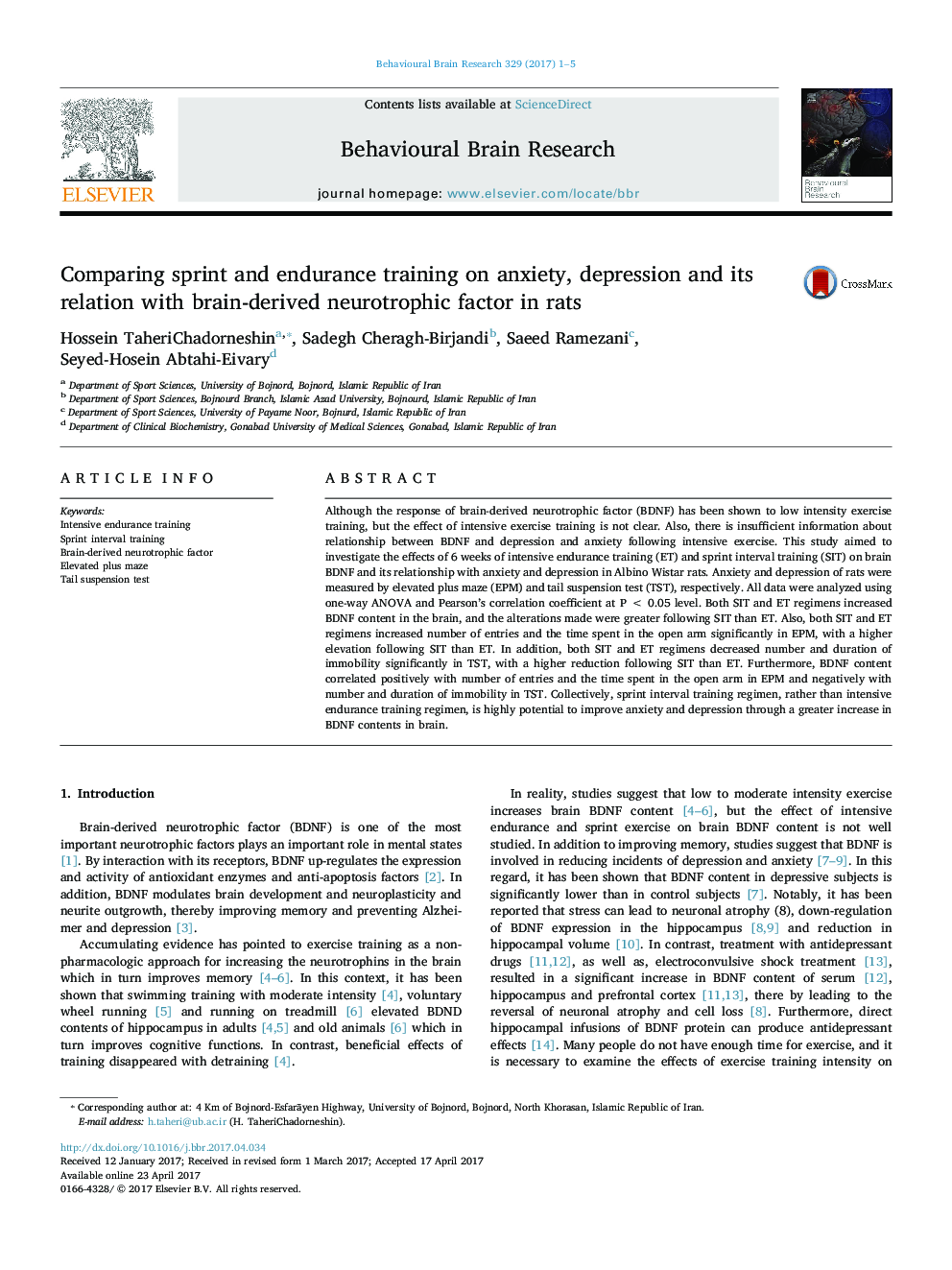| Article ID | Journal | Published Year | Pages | File Type |
|---|---|---|---|---|
| 5735427 | Behavioural Brain Research | 2017 | 5 Pages |
Abstract
Although the response of brain-derived neurotrophic factor (BDNF) has been shown to low intensity exercise training, but the effect of intensive exercise training is not clear. Also, there is insufficient information about relationship between BDNF and depression and anxiety following intensive exercise. This study aimed to investigate the effects of 6 weeks of intensive endurance training (ET) and sprint interval training (SIT) on brain BDNF and its relationship with anxiety and depression in Albino Wistar rats. Anxiety and depression of rats were measured by elevated plus maze (EPM) and tail suspension test (TST), respectively. All data were analyzed using one-way ANOVA and Pearson's correlation coefficient at PÂ <Â 0.05 level. Both SIT and ET regimens increased BDNF content in the brain, and the alterations made were greater following SIT than ET. Also, both SIT and ET regimens increased number of entries and the time spent in the open arm significantly in EPM, with a higher elevation following SIT than ET. In addition, both SIT and ET regimens decreased number and duration of immobility significantly in TST, with a higher reduction following SIT than ET. Furthermore, BDNF content correlated positively with number of entries and the time spent in the open arm in EPM and negatively with number and duration of immobility in TST. Collectively, sprint interval training regimen, rather than intensive endurance training regimen, is highly potential to improve anxiety and depression through a greater increase in BDNF contents in brain.
Keywords
Related Topics
Life Sciences
Neuroscience
Behavioral Neuroscience
Authors
Hossein TaheriChadorneshin, Sadegh Cheragh-Birjandi, Saeed Ramezani, Seyed-Hosein Abtahi-Eivary,
